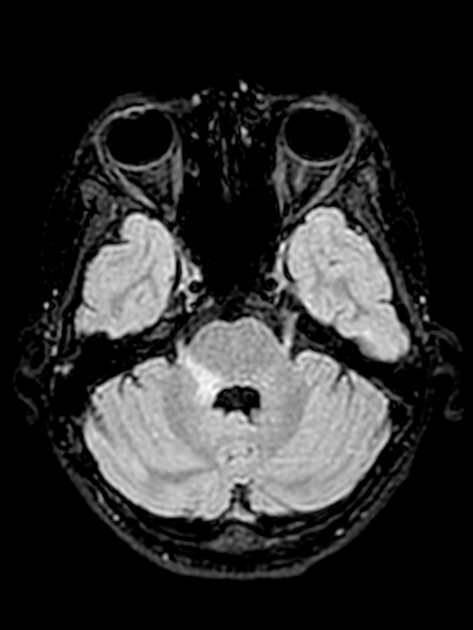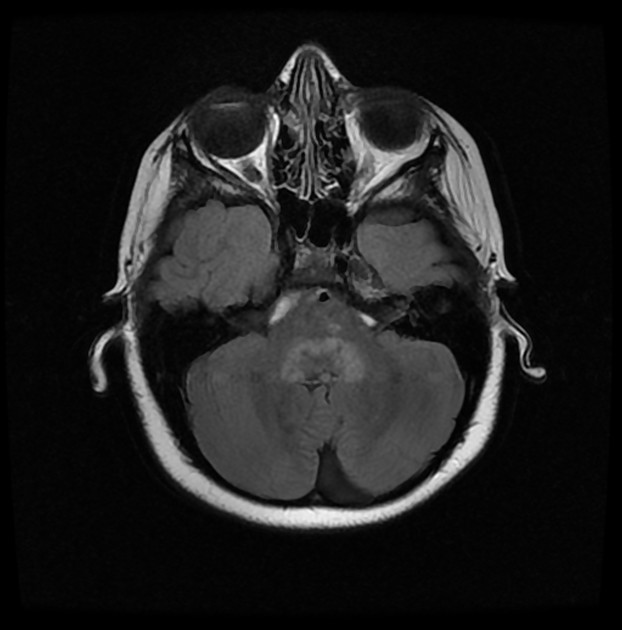Bickerstaff encephalitis, also known as Bickerstaff brainstem encephalitis, is a rare immune-mediated condition, often a phenotype of the anti-GQ1b antibody syndrome.
On this page:
Epidemiology
Bickerstaff encephalitis is very rare. it typically affects adult patients in early to middle age 4.
Clinical presentation
Bickerstaff encephalitis is often seen following an infection, typically a respiratory viral infection 1,4.
Patients typically present acutely with 2,4:
external ophthalmoplegia
cerebellar ataxia
altered conscious state
-
pyramidal signs, including hyperreflexia and extensor plantar responses
although many patients have decreased or absent reflexes
paresthesias
autonomic dysfunction
Radiographic features
MRI
MRI brain is most commonly normal 4. When abnormal, Bickerstaff encephalitis may transiently involve the brainstem and basal ganglia and is characterized on MRI by regions of high T2 signal with little - if any - enhancement. Typically these regions also demonstrate some minor restricted diffusion 1.
Treatment and prognosis
A typical management strategy includes administration of intravenous immunoglobulin 4. Although symptoms are severe, the condition is usually self-limiting with a good prognosis 2.
History and etymology
Bickerstaff encephalitis was first described by Edwin Robert Bickerstaff (1920-2007), a renowned British neurologist 3.






 Unable to process the form. Check for errors and try again.
Unable to process the form. Check for errors and try again.